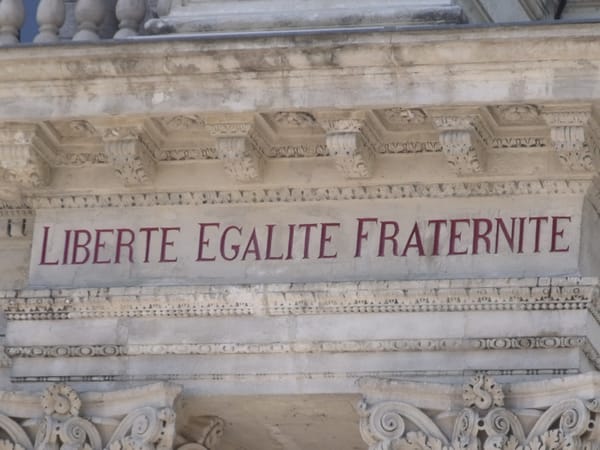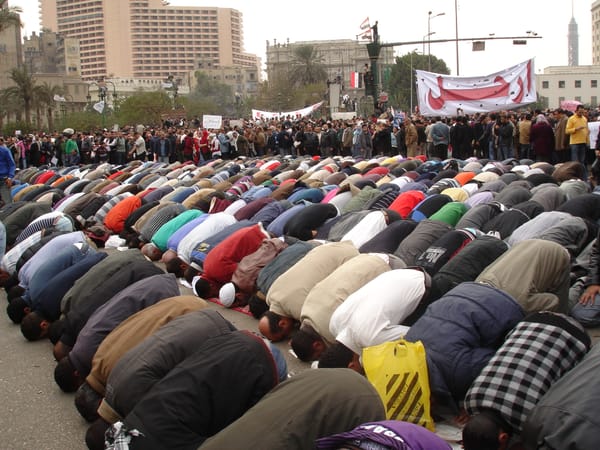Looking Beyond Modern Sanctions

Modern international sanctions are barbarism, disguised as diplomacy; the losses incurred from this lack of cooperation limits the potential of all humanity, and sanctions themselves serve only to diminish the humanity that lies in their paths, never the elite or system which they are allegedly focused on curtailing, reforming or eliminating. Sanctions therefore, serve even less practical purpose than their predecessors, the siege and blockade. If the practical evidence from places like Iran, North Korea, Iraq, Vietnam, and others is not convincing enough to these ends however, the recent, massive international data leak paints the picture with absolute crystal clarity.
The FinCen Files, as they’re named, offer some of the broadest glimpses into the more nefarious workings of high end banks and their financial transactions that you can find. The files, which take their name from the United States Financial Crimes Enforcement Network, where any suspicious transactions involving US Dollars must be sent, shows how Iran avoided sanctions through the United Arab Emirates, as well as how North Korea skirted sanctions through major Western financial institutions over the course of at least a decade.
If that wasn’t enough, the files also demonstrate how oligarchs from nations like Russia and beyond who, facing sanctions, have also found ways to avoid barriers from these nations, economic institutions and global cooperatives. What these files amount to is an absolutely gaping chasm blown into the argument of the proponents of the modern sanction.
The modern international system of sanctions, roughly 100 years old depending on one’s qualifications or examples, is very much predicated upon diminishing or blotting an entire nation to enact some sort of positive response from it; the only inevitability it generates is greater hostility from, and suffering by, those people of the targeted nation in question. Because of the reliance upon this pseudo-diplomatic crutch where greater education and creative, diplomatic innovation could make progress in solving real-world issues for nations and their people alike, both men and nations have behaved without either ambition or imagination towards this goal. The result of this failure can be seen playing itself out during and after this physical or economic violence of international sanctions. A sense of order, in other words, has been chosen over a sense of real and total sustainability for the nations and people of the world. Can such an endeavor as peaceful and mutually beneficial cooperation be built and maintained without these primitive, burdensome and aggressive means? I believe the answer to be yes.
America and the rest of the western world, bearing all of the economic development and privilege it possesses, could reasonably create broad, global economic blocs of cooperation. This is to say, economic blocs in which resource, labor, environmental safety, production standards and measures and more, could be made more uniform and therefore, allow for more reasonable consumption, production and mutual growth involving all cooperating peoples, states and countries. For as Mary Parker Follett once said, “We are not wholly patriotic when we are working with all our heart for America merely; we are truly patriotic only when we are working also that America may take her place worthily and helpfully in the world of nations.” In this vein, America will have to show a different type of international leadership than it has actively and historically shown to date.
While America had long, until quite recently, concentrated its foreign policy on creating strong nations of its allies, while leaving any opposition to rot, the world has now entered a stage in history where many, but certainly not all, of those long allied nations have been consolidated as cooperative partners. In the meantime, less fortunate nations and peoples have been left to flounder in social and economic oppression because of the nature of their international isolation, political circumstance or historical position. Today, highlighted by COVID-19 induced global recession, a massive social and economic impact has been disproportionately felt by those without pride of place in the international order which America has had the largest hand in establishing. America and its western allies, while working more closely together, must also turn their attention to reconciling with those who do not necessarily see eye-to-eye. They will be the ones for which real innovation in diplomacy is most needed for, and whose cooperation on more even and broadly reciprocal means could very well open up a more egalitarian world across borders and boundaries. To this end, standards for joining such a bloc must not be closed in any type of malicious or politically motivated means, but rather must simply be based on complying with human, environmental, social and economic standards that should be explicitly defined outside of any particular political institution or system.
In this way, nations could find incentive to cooperate and develop in a way that will not feel explicitly forced, but rather could be presented as reforms of their very own volition, applied internally and checked equally by the members of the international bloc/community themselves. Joining would be as simple as pledging and demonstrating ambition for these universal innovations, as well as estimating the cost of the necessary social, ecological, economical and humanitarian reforms to accommodate the blocs standards; the bloc itself would aid in development of these nations as trust and mutual cooperation further grows. Transparency, during and after the initial acceptance processes, will have to be a hallmark of the community as well; while there will be some initial innovations by which nations will have to conform to, and may require assistance in some economic scenarios, the mechanisms by which nations are then held to these standards must be both as cooperative and transparent as well.
This will mean that the way that each nation is represented in this theatre will have to be unique to both manage and accentuate the broad political, social and cultural diversity it could very well be made of, as well as to offer recourse should belligerents arise both across and within, member nations. There are certainly different options for addressing and reconciling domestic and international dilemmas more effectively than both the United Nations or the European Union do currently. To this end a few innovations, of which I’ll expound upon further in follow up essays, include a discussion upon the style and system of representation in this bloc, as well as the necessary expansion of democratic principles domestically, of which would be utilized in this international arena as well.
Now, in the instance that a nation does break or violate the general standards of the bloc, while also wishing to still remain within the community and its cooperation, they will first be confronted with these violations in an open and equal arena. The criticisms must be focused strictly on policy and standards, not personal or cultural animosity. The spirit of inclusivity must be nearly tangible in fact, for as the statesman Henry L. Stimson once said, “The chief lesson I have learned in a long life is that the only way you can make a man trustworthy is to trust him; and the surest way to make him untrustworthy is to distrust him.”; nations are no different in this way.
Should the belligerent nations’ administration choose to further violate or ignore these standards, which of course affects the other bloc nations in the process, then it falls to the collective action of the members themselves. To create an analogy, the international neighborhood would have to protect the integrity of each house and its residence should an offending magistrate attempt to subvert the standards and rights of the aforementioned humanity through economic, social, political, cultural and/or ecological means. To quote once more from Mary Parker Follett on the matter, “….Interdependence is the keynote of the relations of nations as it is the keynote of the relations of individuals within nations.” Were all measures to fail in reigning in the belligerent nation, they would eventually be excised from the bloc by vote of the community, to maintain the viability of the blocs varied objectives as well as humanitarian and global commitments.
To be sure, the incentivized economic, ecologic, human rights and opportunities for progress are meant to act as natural deterrence to conflicts that would lead to the requirement of disciplinary action or revocation. The goal is to create comfortable domestic environments, stretching globally, that allow for nations to handle issues internally and externally in unique, yet responsible means, where ones’ global community both supports, as well as holds nations and their actions accountable to a standard common to all humanity, without exception. Reconciliation, arbitration and reform throughout a bevy of areas of domestic and international relevance could likely be attained by accentuating our similarities more than our differences; that is, were many of these efforts not also broadly entangled in the explicit starvation and strangulation of nations into moral or economic submission.
And so, instead of this verbose dominance, the powerful productive and consumptive nations will have to behave with less subjective goals, and more globally objective ones. Many of our natural allies internationally will be able to accommodate this; they will more easily be able to reconcile whatever minor differences exist outside of the developed spectrums of compliance or procedure. However, there will certainly be nations that wish to join and partake that will require assistance in properly doing so. These more well off bloc nations would, perhaps based upon GDP or some other variable group of progressive determinants, have to commit economically, scientifically or otherwise in assisting with the development of particular segments of the nation(s) infrastructure, as well as their political and economic society.
The obvious benefits for this broadly collaborative, yet individually tailored approach to developing relationships, as well as social and economic cooperation and cultural understanding with nations, should not be difficult to quickly comprehend. For the particular nations who might be won over by the incentives of resource and economic potential, they would get not only access to greater resources and consumptive populations, but also to improved means and standards of domestic life in the process; revitalizing many parts of the world that have found themselves withering away or blown to bits over the last 120 years in particular, of human civilization.
Meanwhile, the nations of which are contributing to this development in return for agreed economic, humanitarian and environmental cooperation are provided with greater theoretical and practical consumption, as well as resources of course. However, as alluded to above, they are also eliminating many of the reasons for pressure creating techniques such as nuclear development, piracy, economic and/or political terrorism and/or militarized aggression in the process. The potential human, economic and social implications of innovations along these lines are massive to be sure.
The preferably perpetually growing combination of the bloc, along with the resources, economic capacity and mutual benefits, would leave increasingly less reason to invest as much capital into offensive means, and more into the development of humanity instead. Incremental disarmament and Military Industrial de-escalation could and should be pushed for in time, as international cooperation and participation expand to include nations who might have been cause for these means at some time or another in history; the good faith and empathy of all nations, remembering their own histories and struggles, will have to be put before the juxtaposing selfish, shortsighted and reactionary outlook of those who wish to hold entire peoples and generations to the proverbial blade, for the political and economic sins of elites and ancestors.
The opportunity to reconcile nations and cultures we’ve previously diminished or distrusted must be sincerely and persistently focused upon. Should this be done effectively and with tact towards the true and real circumstances, economically, resource-wise, socially, ecologically and culturally, reconciliation can be found, and with it, greater economic and total human prosperity can follow as well. But it will take the abandonment of the present system of barbaric punishment and restriction of resources; instead, diplomatic innovation such as humanity has known, to varying degrees of proficiency and depth, for hundreds, even thousands of years must be built upon and further developed beyond where mankind has gone before. Without imagination, empathy and cooperation, the world can never hope to operate in the egalitarian way in which makes for the best and most sustainable world and humanity, no matter the nation, region or location on earth.
Featured Image is The Ambassadors, by Hans Holbein the Younger




